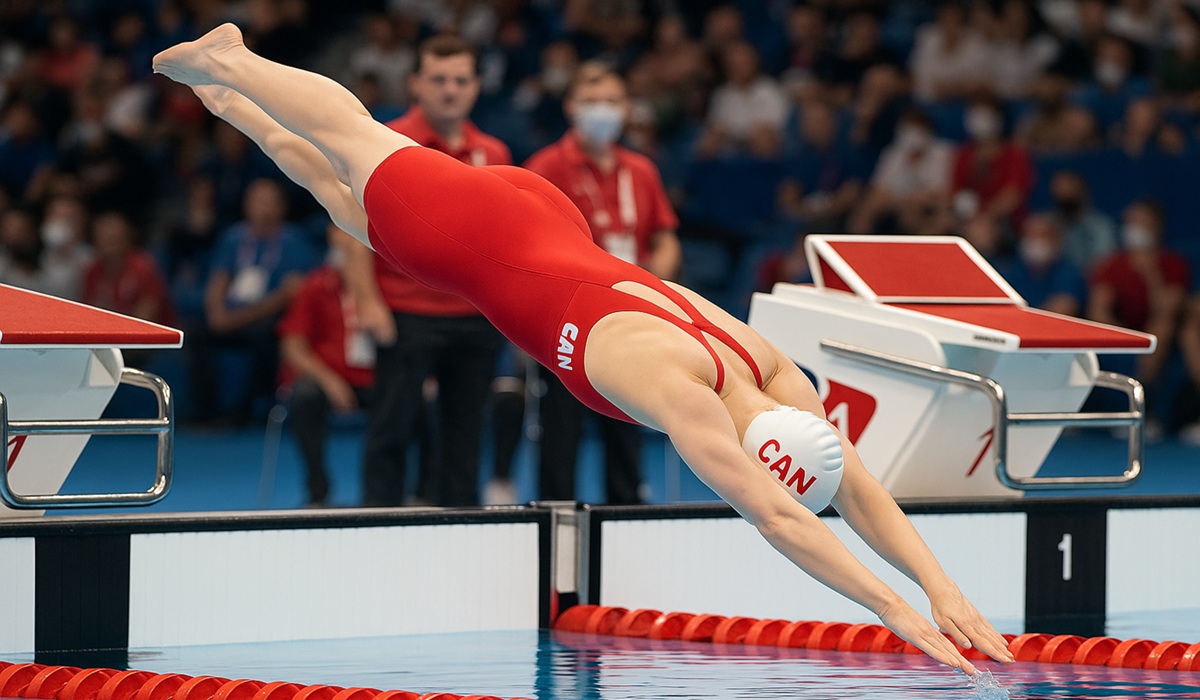Penny Oleksiak Suspended Until 2027: A Champion Sidelined by an Administrative Failure
- Ingrid Jones
- Sports
- November 26, 2025

Penny Oleksiak is one of the most recognizable and accomplished athletes in Canadian history. She is the country’s most decorated female Olympian, a record-holder, and a swimmer who helped define a generation of Canadian excellence in the pool. From her breakout performance in Rio at just 16 years old to her continued presence on the international stage, she has represented Canada with strength, discipline, and consistency.
But now, that journey is paused.
Oleksiak has been handed a suspension that runs until July 14, 2027, not because of a failed drug test or a performance-enhancing substance, but because of three “whereabouts failures.” These failures mean that, on three separate occasions, she did not properly submit or update her required location information in the anti-doping system that allows testers to find athletes for random, out-of-competition drug tests.
It is important to state clearly: this is not a doping case in the traditional sense. There was no positive test. There is no accusation that she used a banned substance. This is an administrative compliance issue. However, in elite sport, administrative rules are still rules, and they exist for a reason.
At the same time, it must also be said plainly: three missed filings are unacceptable. This is not a minor oversight. At this level of competition, maintaining accurate whereabouts information is a core responsibility. It is part of the job. Just like showing up to training, competitions, or national team duties, compliance with anti-doping requirements is non-negotiable. Every elite athlete knows this. There are reminders, alerts, support systems, coaches, and managers around them specifically to prevent these types of situations.
That is what makes this so frustrating for fans, teammates, and the broader Canadian sports community.
The suspension means Oleksiak is now ineligible to compete at any sanctioned event for nearly two full years. Any results or achievements earned after the last missed filing date are voided. She will not be able to represent Canada at world events during this period, nor participate in qualification races tied to major competitions. At the earliest, she could aim for a return in time to begin preparing for the 2028 Olympic cycle.
What happens next is layered and uncertain.
On a personal level, this is an emotional and psychological setback for an athlete whose entire identity has been built around competition, performance, and national representation. For any competitor who has spent years living under rigid discipline, losing the right to race is a profound loss. The pool, once a place of purpose, becomes an off-limits arena.
On a national level, Canadian swimming now loses one of its anchors. Oleksiak has been more than just a medal contender — she has been a leader, a symbol for younger swimmers, and a proven performer on the biggest stages. Her absence creates a void that will not be easily filled. Younger athletes will be asked to rise faster. Veterans will be asked to carry more. The ripple effect will be felt throughout the program.
On a broader scale, the situation is a powerful reminder of how modern sport operates. It is no longer just about talent and training. Behind every race is a system of compliance: reporting systems, digital filings, biological passports, and constant accountability. Athletes today are not only competitors — they are administrators of their own information, 365 days a year.
And one lapse is a warning. Two is a red flag. Three is a violation.
It does not erase her legacy. No suspension can take away what she’s already done. The gold, the records, the history books — those remain. She is still Penny Oleksiak: the teenager who shocked the world, the sprinter who carried Canadian swimming on her shoulders, the athlete who proved that greatness can come from Toronto and stand on the highest podiums.
But this moment is now also part of her story.
What defining stories do, however, is offer a choice. A retreat. Or a return.
If she chooses to come back, the road will be steep. She will be older. The field will be faster. The sport will have moved on. But champions are not defined solely by their victories. Sometimes they are defined by how they respond to their quietest, hardest chapters.
For now, there is no race to watch. Only time, reflection, and a country waiting to see what Penny Oleksiak decides to make of the next two years.








